
Climate and energy fact check
By CFACT Ed
The media is calling July 2023 the “hottest month on record” and even the “hottest month in the history of civilization.” Keeping in mind that July is typically the warmest month of every year, NASA satellite data indicate that July 2023 was the warmest July in the satellite record. But that record only dates back to 1979 and there certainly were Julys before 1979.
In terms of monthly temperature anomalies (temperature differences relative to a common baseline used to evaluate the notion of emissions-driven “global warming”), February 2016 had a greater anomaly than July 2023. March 2016 had the same anomaly and April 1998 was only an unmeasurable 0.02°C lower (see graph, below, and data). So February-March 2016 and April 1998 are not really endorsements of the hypothesis that every emission warms the planet.
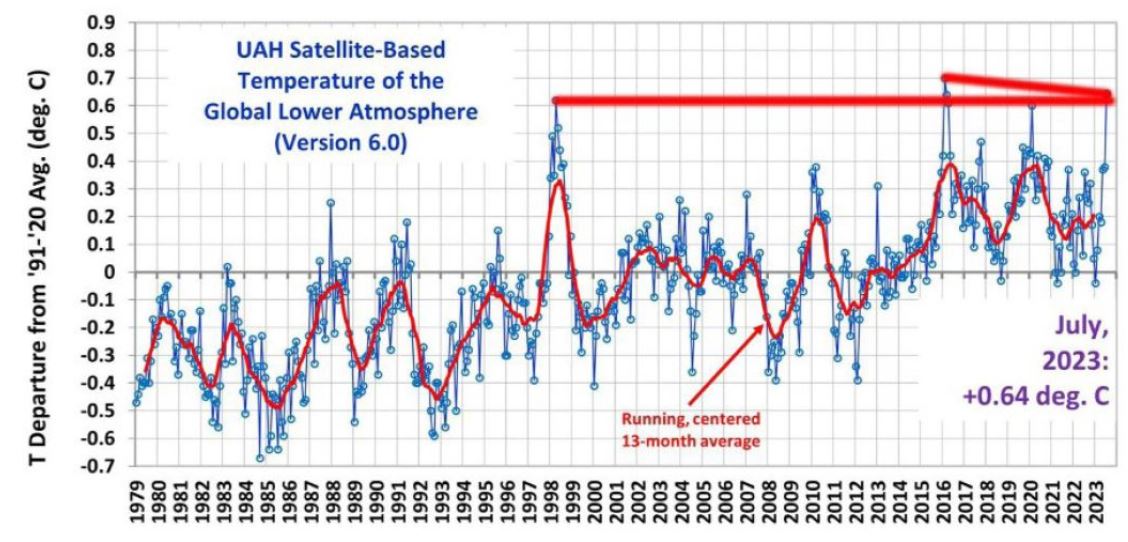
Recalling that average global temperature is on the order of 58°F, use of the term “hottest” is obviously quite an exaggeration. Finally, the notion of “average global temperature” is not really meaningful in the first place. It has no physical reality, and its component satellite and surface station temperature measurements lack precision to a significant degree.
Notwithstanding the above, was July 2023 the “hottest month in the history of civilization”?
We will address that after you check out the 10 climate fact checks for July 2023 presented below.

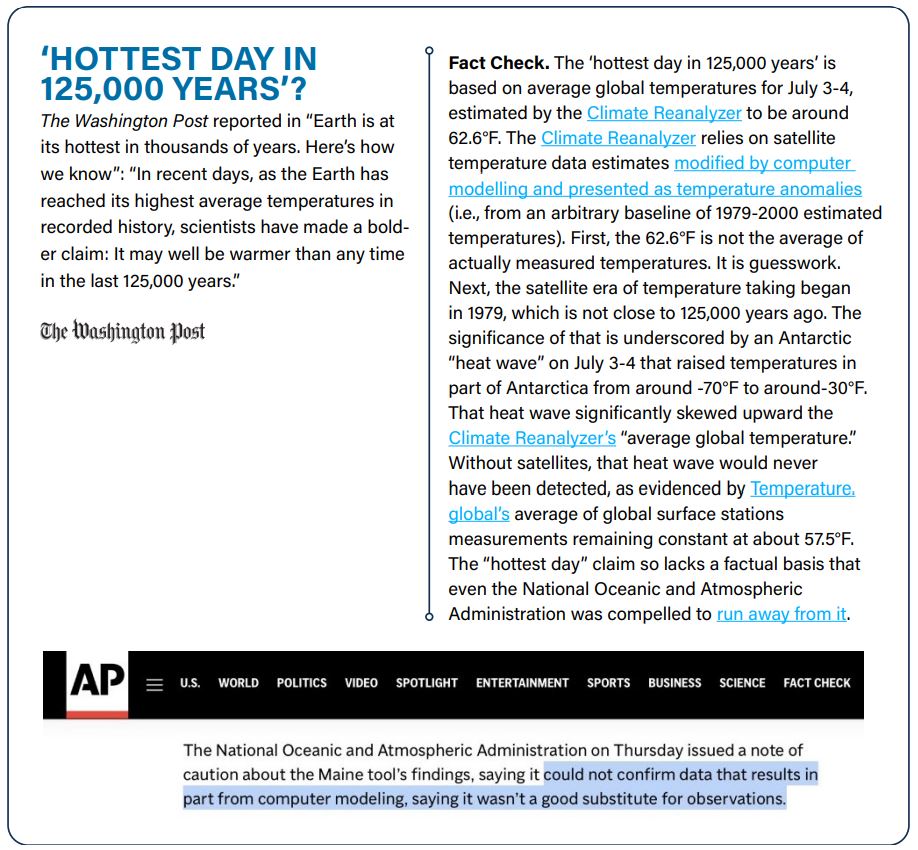

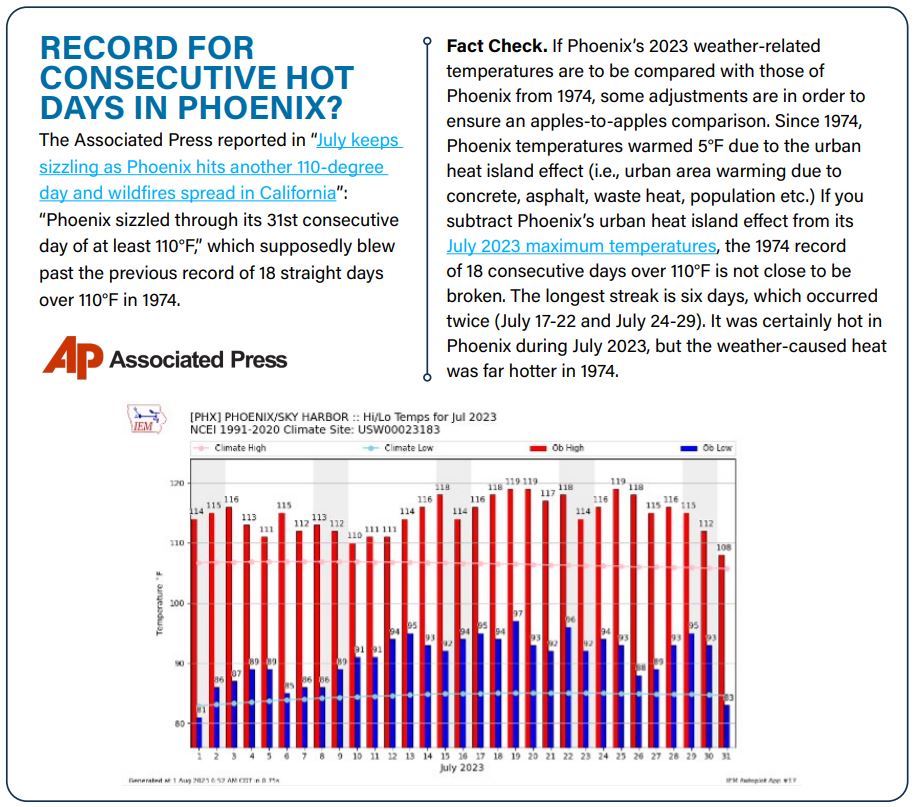
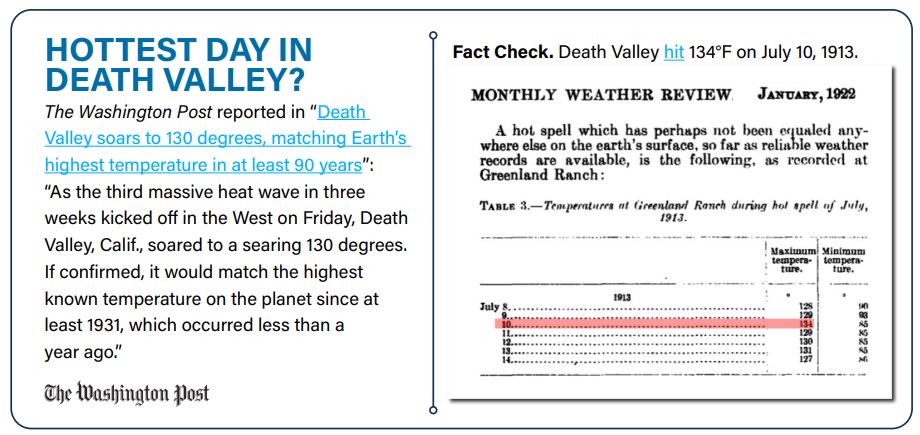
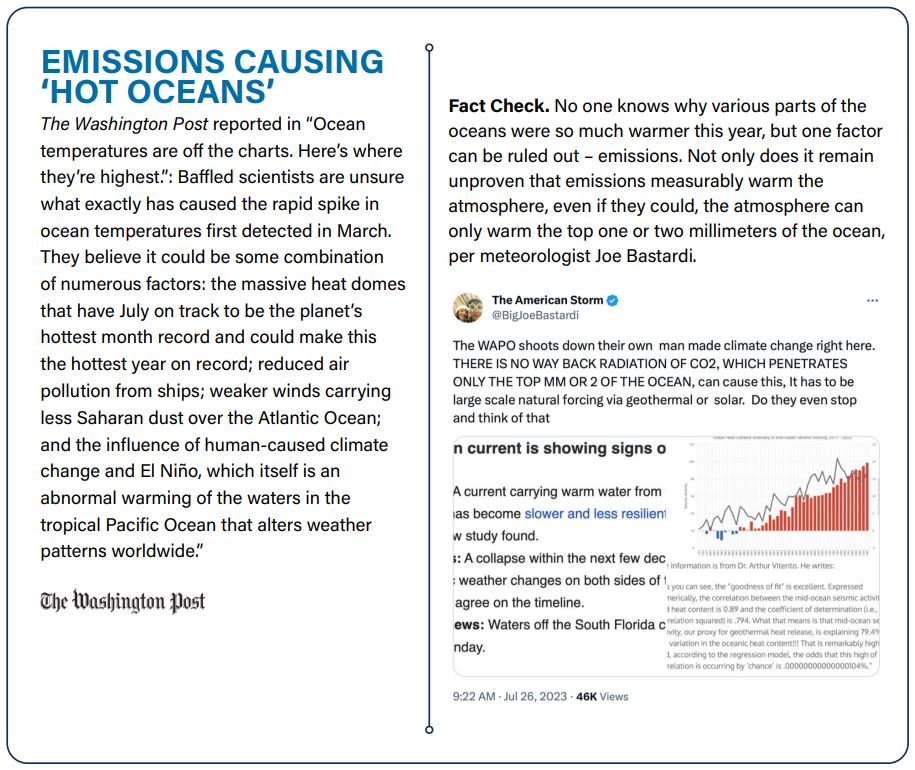
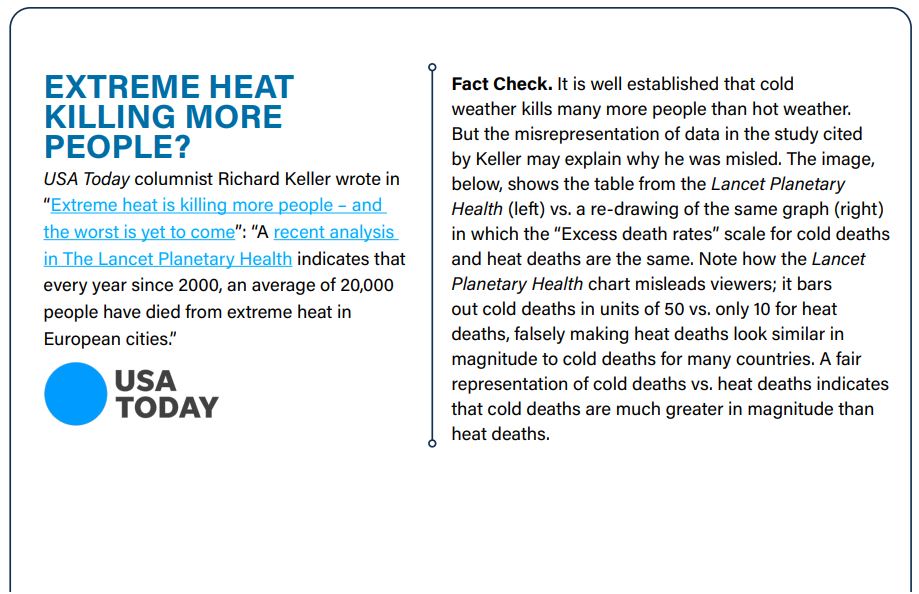
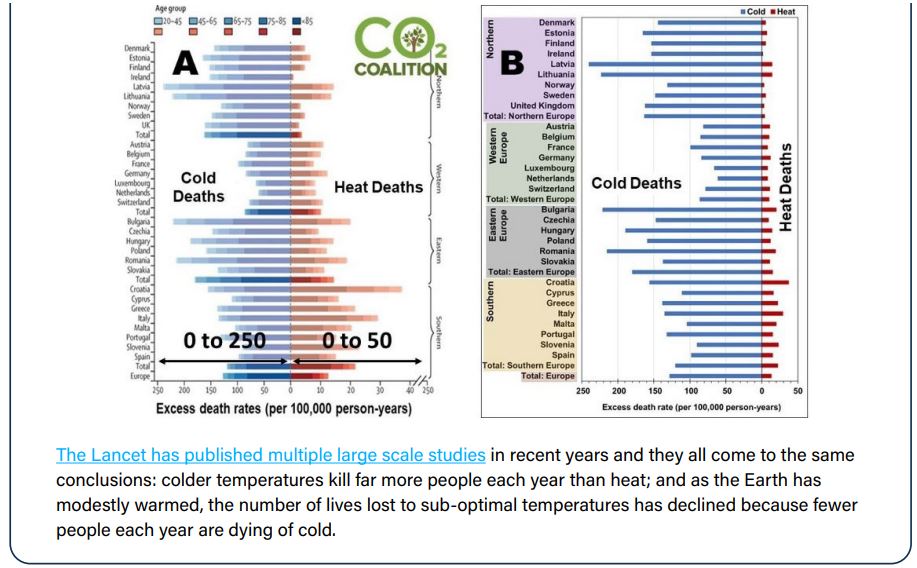

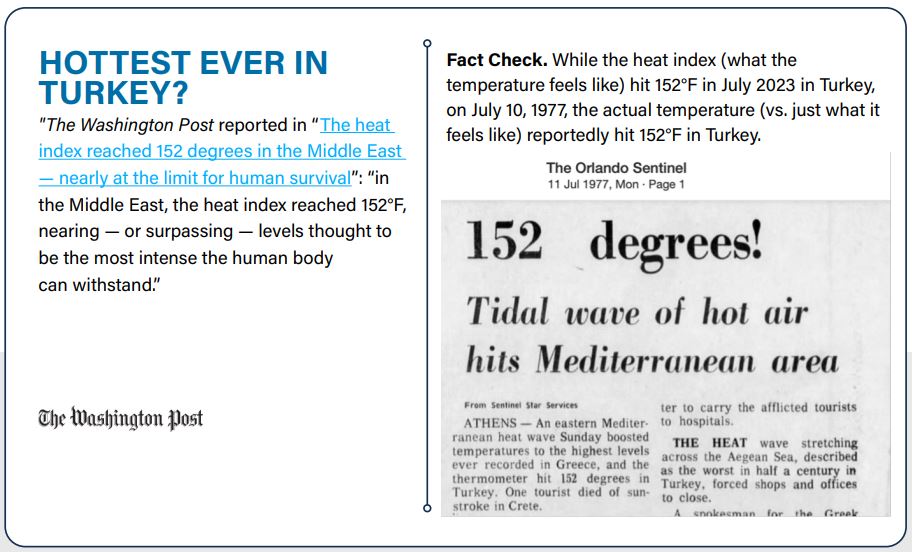
So was July 2023 the “hottest month in the history of civilization”? Consider the following.
July’s warm temperature was skewed by the strong, short-term spike in Antarctic temperatures highlighted below. Such a short-term pike in temperatures is not indicative of a long-term climate trend, but rather anomalous, localized factors.
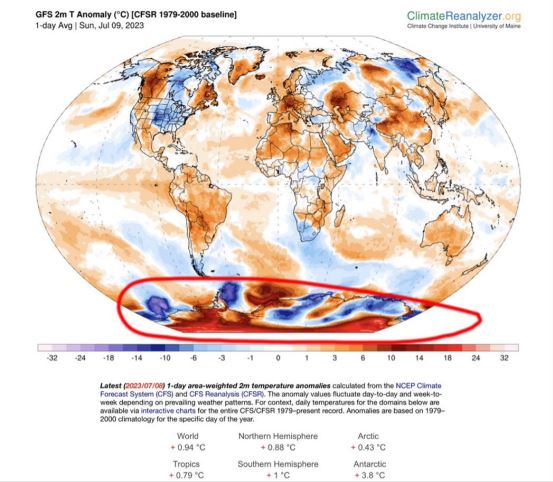
Presented by the Competitive Enterprise Institute (CEI), the Heartland Institute, Energy & Environment Legal Institute, Committee for a Constructive Tomorrow (CFACT), the International Climate Science Coalition (ICSC), and Truth in Energy and Climate.
That heat wave was only detected and factored into average global temperature because of satellite coverage of the globe. But satellite coverage didn’t begin until 1979. So similar heat waves that may have occurred before 1979 would be unknown and not factored into average global temperature calculations. So it is not possible to claim that July 2023 was the “hottest month in the history of civilization” because such data does not exist.
Finally, it is important to recall that the basis of climate alarm is that emissions of greenhouse gases drive global warming. We believe recent warming has been driven by the series of El Nino events since 1980, not emissions. July’s warm temperatures do not alter this view as, in fact, a new El Nino seems to have started.
Until next month…
From cfact.org